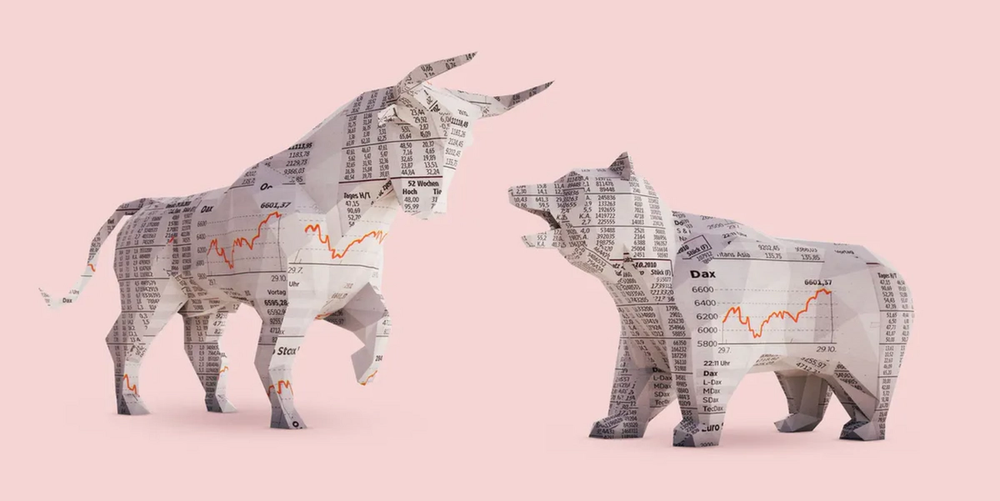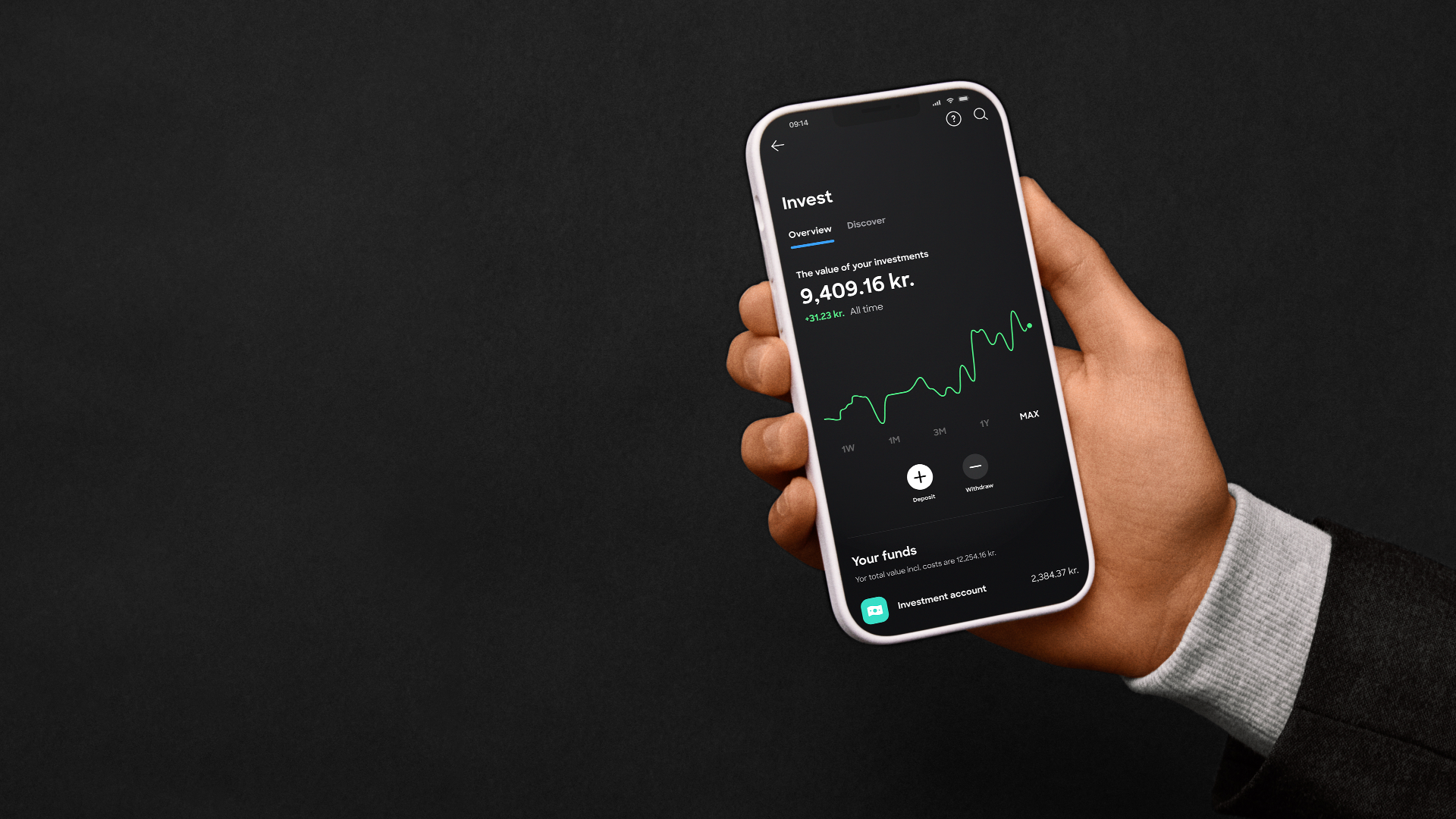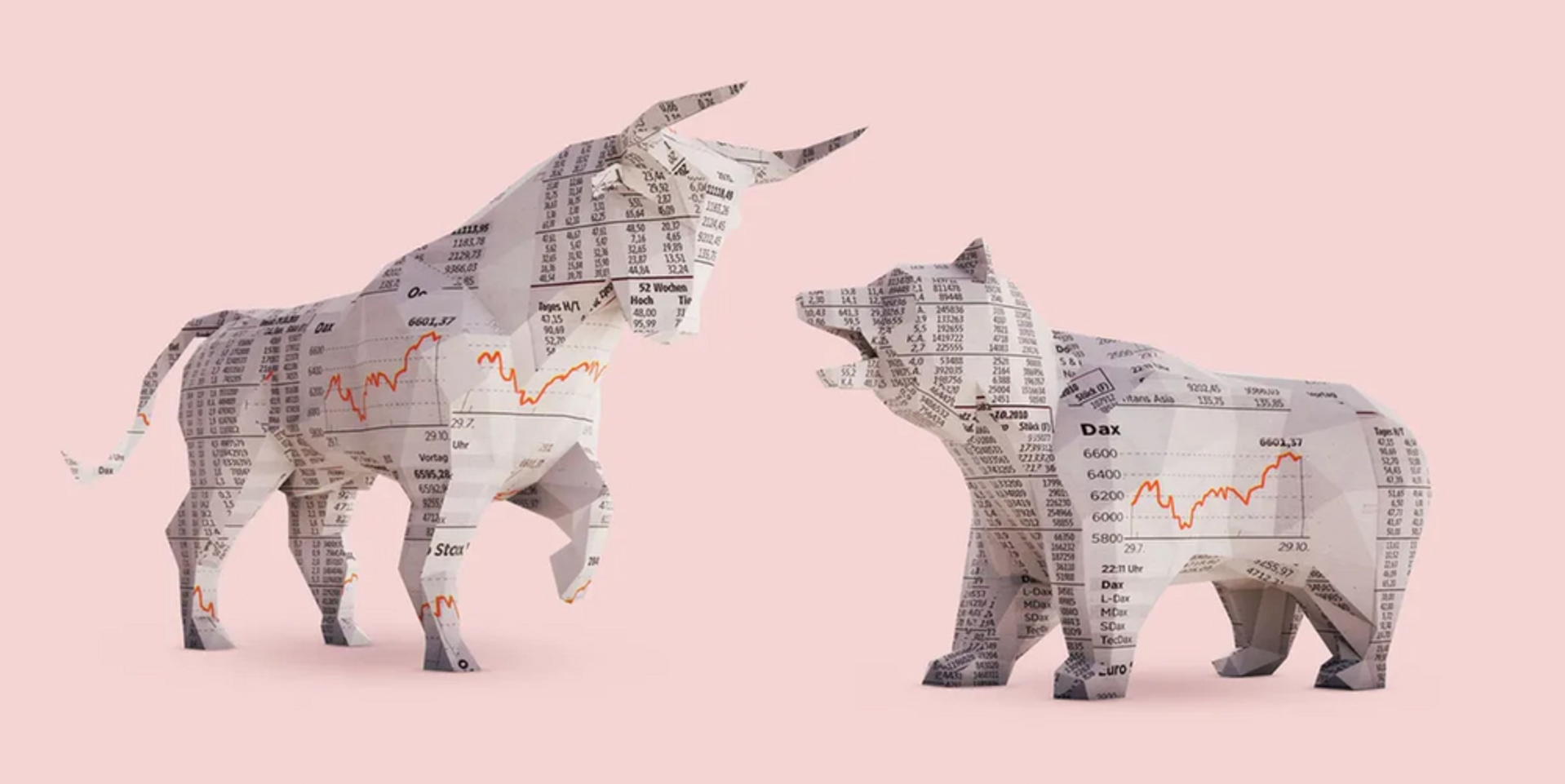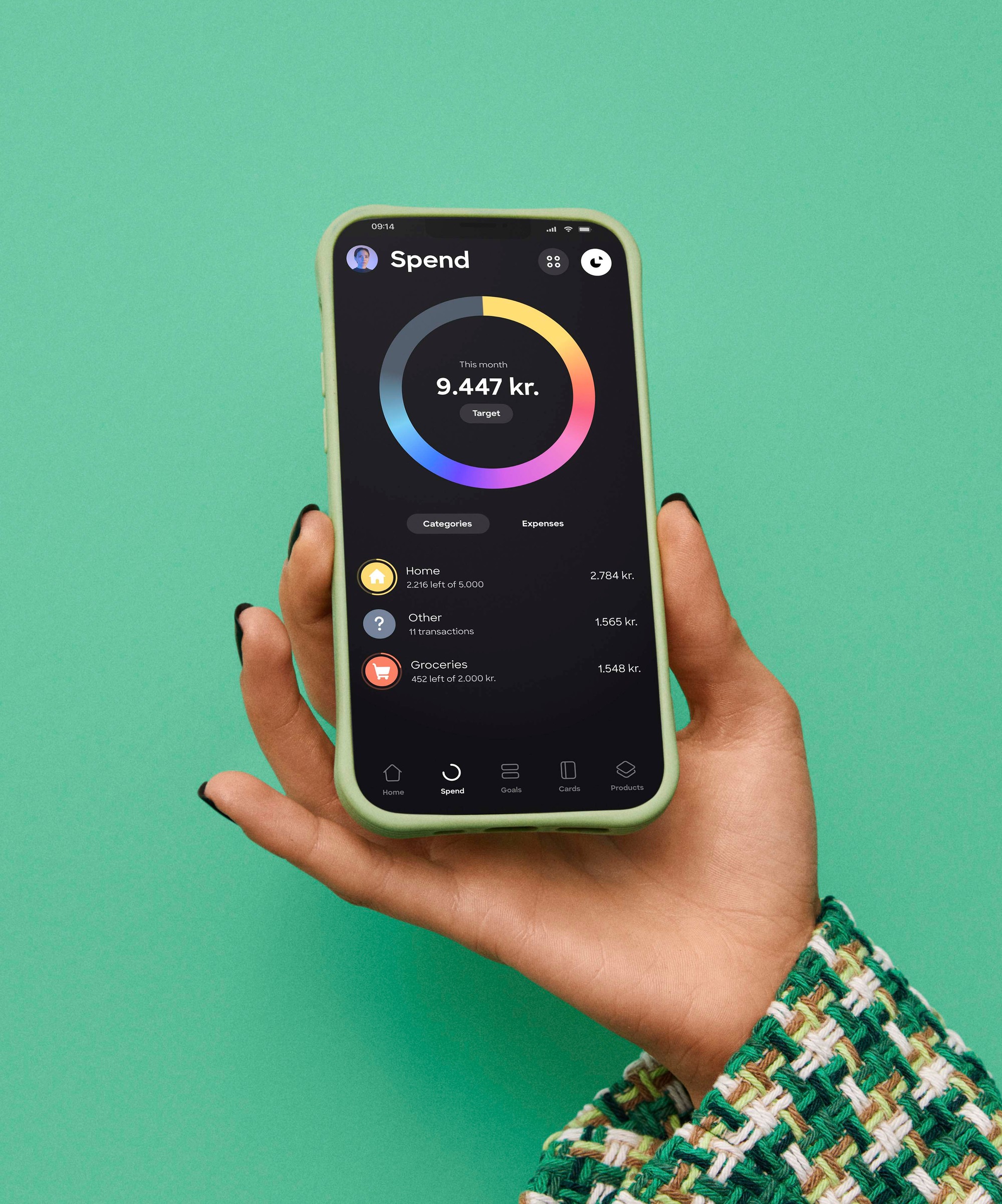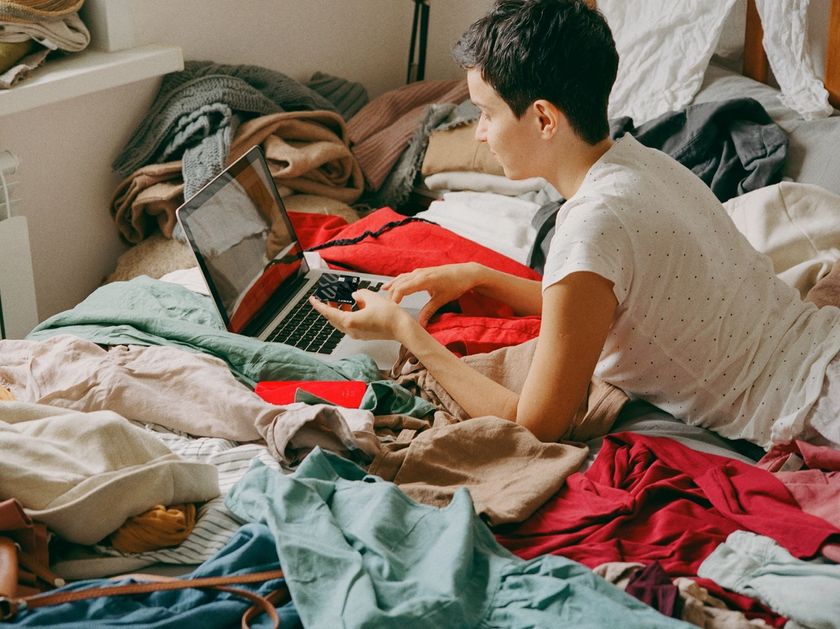New to investing? Here are 15 expressions you need to know
Investing is actually not that hard to get into as you may think. The first step is learning the lingo. So here are 15 expressions you need to know as a new investor.
- SHARES, STOCKS AND SHARE PRICE
- STOCK EXCHANGE AND STOCK EXCHANGE LISTING
- DO STOCK EXCHANGES HAVE OPENING HOURS?
- BROKERAGE FEE
- MINIMUM EXPENDITURE
- BULL MARKET
- BEAR MARKET
- DEPOT AND STOCK PORTFOLIO
- DIVERSIFICATION - THE SPREADING OF RISK
- BLUE CHIP
- LARGE-CAP, MID-CAP AND SMALL-CAP
- VOLATILITY
- RETURN
- YIELD
- TERM
- Want to try your hand at investing?
Many believe investing is hard and tricky.
Admittedly, it’s not as easy as riding a bike. BUT it’s also not that hard that you have to have a degree in Wall Street to invest your money.
An excellent place to start is to learn the expressions and words used when investing and trading stocks. For that reason, we’ve gathered 15 phrases and facts you need to know as a new investor.
SHARES, STOCKS AND SHARE PRICE
A share is a piece of a company. When you buy a share, you become a shareholder and thereby owns a part of the company you have invested in. Stocks are a collection of shares.
Shares are bought and sold at a stock exchange. The cost is called a share price. The price depends on how many shares are up for sale and how many wish to purchase them. The expectation of the company you buy shares in also help determine the share price.
STOCK EXCHANGE AND STOCK EXCHANGE LISTING
A stock exchange is a place you trade stocks and shares. In many ways, it works like a regular shop. Someone is selling a product, someone is buying a product. When both parties agree on the price, you trade.
All countries have a stock exchange - the primary market of that nation - where stocks and shares are traded. The Danish stock exchange is called Nasdaq Copenhagen but is also known as the Copenhagen Stock Exchange.
When a company is listed on a stock exchange, you can trade stocks in the stock exchange where the company is registered. If for example, you want to buy shares in Nike, you need to buy them on the New York Stock Exchange, because that’s where Nike is listed. If you wish to own a piece of Carlsberg, you have to go to the Copenhagen Stock Exchange. Because that’s where Carlsberg is listed.
Get Lunar. Right here.
DO STOCK EXCHANGES HAVE OPENING HOURS?
With much of stock trading being done online, it’s easy to assume that stocks can be traded at all hours of the day. Unfortunately, it’s not that straight forward. Stock exchanges still have opening hours (the regular 9-5-ish ones) and adhere to their respective time zones.
With Invest, you buy and sell stocks when the market is open at some of the lowest prices in Denmark. Read more about Invest right here .
BROKERAGE FEE
When you buy and sell stocks, you not only pay for the stock itself. You also pay the bank you’re trading through, for the service. It’s called a brokerage fee, and the price can vary a lot depending on the bank, broker or platform you choose.
With Invest the brokerage fee is always 19 DKK per trade + any currency exchange fees. You also get to see the entire price for trading before you buy or sell your stocks. Read more here .
MINIMUM EXPENDITURE
Minimum expenditure is an amount that your broker can demand that you trade for - as a minimum - to trade through this broker.
The amount itself can vary greatly depending on your broker from a few hundred to several thousand DKK to trade through them.
At Lunar there are no demands for minimum expenditure. It’s your money, so you decide how much of it you want to invest. Read more here .
BULL MARKET
A bull market is a market where prices are increasing and expected to increase further. In short, it’s a condition where the market is going onwards and upwards.
Fun fact: You probably know the colossal bull sculpture that stands on Wall Street - one of the world’s leading financial districts. The bull symbolises a market pushing forward - like a charging bull - hence the phrase “a bull market”.
BEAR MARKET
When the market is going down, is expected to keep declining and drops with 20%, it’s called a bear market.
Known examples of a bear market are the Financial Crisis of 2008, or the stock market crashes that lead to The Great Depression in 1929 and Black Monday in 1987.
DEPOT AND STOCK PORTFOLIO
The depot is used in several different contexts and basically means “storage space”. A stock depot is, therefore, a kind of warehouse or account where you keep and have an overview of your stocks. To trade, you have to have an investment account dedicated to investing.
DIVERSIFICATION - THE SPREADING OF RISK
There’s an old saying - don’t put all your eggs in one basket. The same goes when you’re investing. At least if you ask the experts.
Because regardless of how you choose to invest, there will always be a risk. Always. The reason is that by investing all your money in one company, you risk losing a substantial amount of your investment (if not all) if the company drop in value. By investing in a wide variety of businesses and industries, you spread your risk of losing money on your investments.
BLUE CHIP
Blue chip nothing to do with either snacks nor casino.
Instead it’s the word used to describe companies that are generally acknowledged, well-established, and financially sound company.
LARGE-CAP, MID-CAP AND SMALL-CAP
“Cap” is short for capitalization. Market capitalization - or market value - is a way to index limited companies (i.e. companies that are listed in stock exchanges). You divide the companies into three.
- Large-cap: Companies that are valued above 1 Bill. euro.
- Mid-cap: Companies that are valued to be worth 150-1000 Mio. euro and more.
- Small-cap: Companies that are valued to be worth less than 150 Mio. euro
Get Lunar. Right here.
VOLATILITY
A nice bank-ish word that is used to describe fluctuations on the stock market, and how risky investment could potentially be.
If the value of a share fluctuates dramatically in a short amount of time, it will be described as volatile. The volatility of a share is determined by how much its value fluctuates compared to the stock market average.
Tip: Try reading our blogpost on why cryptocurrencies are so volatile , to get a better idea of the term volatility. Remember, all trading with stocks and cryptocurrencies involve a large risk.
RETURN
Return is the expression used to describe how much an investment has decreased or increased in value.
YIELD
Yield is a yearly payment from a company’s surplus that it can choose to give to its investors and/or owners.
TERM
The expression is used to describe the amount of time you own a stick before you sell it. Long-term investments can have a run time of up to 30 years or more, while a short-term investment can last from a few hours to a few years.
Want to try your hand at investing?
Download the Lunar app, and sign up to Invest in the app. Here, you can invest in stocks, funds, ETFs and much more - directly from your phone.
We do not counsel
Remember, when you Invest, you do it through Saxo Bank A/S. All trade and investing in stocks carry risk. The value of your investment can both increase or decrease, and you can lose the entire investment. We can provide factual information on developments in the stock market, but earlier developments are not an indication of future performance. We do not give investment advice and do not provide recommendations for the purchase or sale of stocks. No information from Lunar should therefore be considered as recommendations, and all decisions are up to you alone.
You might also like...
Expat or student? How to get a free Danish bank account easier than ever.
Get a free Danish bank account and digital card as a non-citizen all safe and digital. Manage your money and NemKonto in an English banking...
Control your finances like a Pro with multiple accounts.
It pays off to get three bank accounts to manage your personal finances. Get inside tips from a real pro - Lunar’s head of credit - and the...
How you are covered by your Lunar Plus and Unlimited travel insurance
You bring your card everywhere. That’s why we have included one of the best travel insurances in Plus and Unlimited. You are covered all...
Become 100% digital without plastic: Choose a digital card.
With Lunar, you can get an account and a card entirely digitally - and it’s for free. Get five reasons of why you should start using a...
